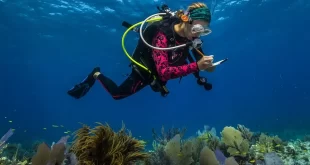The Dalian Institute of Chemical Physics (DICP) is located in the beautiful coastal city of Dalian, China. Over the past half century, research at DICP has addressed the economic and scientific needs of China. The Institute has built up an impressive portfolio of achievements, principally in the fields of catalysis, chemical engineering, chemical lasers, molecular reaction dynamics, organic synthesis, and chromatography for modern analytic chemistry and biotechnology. These achievements have contributed greatly to the economic and technological development of China.
Research at DICP is now focused on energy-related topics, and the Institute’s current development strategy is: focusing on sustainable energy research, and coordinating the multidisciplinary development of environment optimization, biotechnology, and advanced material by strengthening technological integration and innovation. DICP aims to play indispensable roles in national economy and security, and to become a leading research institute in the world.
Since its founding, DICP has produced numerous outstanding scientists and high-quality engineers who have developed strong domestic and international reputations. A total of 26 DICP scientists have been elected to the members of the Chinese Academy of Sciences (CAS), and the Chinese Academy of Engineering (CAE), four to the members of World Academy of Sciences, and one to the member of Academia Europaea. As of September 2019, DICP has over 1,500 employees, and 1,200 graduate students.
Introduction of DICP Postdoctoral Research Center
Established in 1985, DICP was one of the first postdoctoral research centers in China. It houses two national outstanding postdoctoral research centers respectively in chemistry, and chemical engineering and technology. At present, there are more than 220 postdoctoral researchers (including more than 20 international ones. DICP attaches great importance to the cultivation of post-doctoral talents, and many of its postdoctoral researchers have published papers in high-quality journals, such as Science, Angew. Chem, and JACS.
Salary System for Postdoctoral Researchers (valid for two years)
The salary system for postdoctoral researchers is as follows: (Exchange Rate: USD$1 ≈ RMB7.1359)
1. Basic Salary(Minimum Salary)
Amount/per Year (before tax): USD$36,100 (including Housing Subsidy, Liaoning Province Subsidy, Dalian City Subsidy)
2. Outstanding Postdoctoral Support Plan(First Prize :USD$42,000/per Year 、Second Prize: USD $28,000/per Year、Third Prize:USD$14,000/per Year)
Maximum Amount /per Year (before tax): USD$50,100 to USD$78,100
3. Liaoning Province Outstanding Postdoctoral Plan(Top 200 university graduates USD$14,000/per Year):
Maximum Amount /per Year (before tax): USD$92,100
4 .International Postdoctoral Exchange Fellowship Program(Top 100 university graduates USD$28,000/per Year):
Maximum Amount /per Year (before tax) :USD$120,100
5. PIFI Program of CAS (USD$35,000/per Year):
Maximum Total/per Year (before tax) : USD$155,100
*PIFI Program of CAS :The CAS President’s International Fellowship for Postdoctoral Researchers supports promising young international scientists to conduct research at CAS-affiliated institutions for one to two years.
Living Facilities for Postdoctoral Researchers
DICP is located in the beautiful coastal city Dalian, surrounded by mountains and sea, and close to Xinghai Square, the largest square in Asia. Excellent geographical location enables easy access to transportation, shopping, entertainment, and other living facilities for postdoctoral researchers.
In order to promote internationalization, DICPhas implemented a special project. Bilingual signs are available at office buildings, laboratories, dormitory, restaurants, and other areas in each park to facilitate use by foreigners.
DICP also provides fully equipped apartments for postdoctoral researchers. The room has a kitchen, and a separate, fully furnished bedroom.
Personal Development (Exchange Rate: USD$1 ≈ RMB7.1359)
1. Upon finishing postdoctoral work, selected postdoctoral researchers may become an employee of DICP, with an annual salary of USD$21,000/per year, and can also apply for a housing subsidy of USD$42,000 in total from Dalian City.
2. For postdoctoral researchers becoming employees of DICP, and who received doctoral degrees from a Top 200 university in the world, they can enjoy a reward of USD$42,000 in total)for outstanding doctors from Liaoning Province.
3. Upon finishing postdoctoral work, selected postdoctoral researchers may become an employee of DICP, can apply for “DICP Excellent Young Doctoral Talents Plan “. You can directly promotion to associate researcher. The Institute will provide USD$140,000 research fund and USD$70,000 personal subsidy.
4. Upon finishing postdoctoral work, selected postdoctoral researchers may become an employee of DICP, can apply for the “DICP International Talent Plan”. The Institute will provide support and send you to study in internationally renowned universities and institutions. The funding amount is USD$28,000/per year to USD$56,000/per year, and the funding period is 1-3 years.
Research System :http://english.dicp.cas.cn/rh_17184/rs/
Minimum Requirements:
Applicants should have received a Ph.D. in a related field within the last three years, and be 35 years old or younger.
How to apply
To apply for a postdoctoral position at DICP, send a cover letter, a CV, and the names and contact information of three references to Mr. Chang LIU (liuchang@dicp.ac.cn) OR an identified DICP researcher with whom you have contacted before. All applications will be reviewed, and successful candidates will be contacted. Any questions about the postdoctoral program should be directed to Mr. Chang LIU.
Mr. Chang LIU
Personnel Department, Dalian Institute of Chemical Physics, Chinese Academy of Sciences
Add:457 Zhongshan Road Dalian, P.R. China(116023)
Tel:+86-0411-84379103
E-mail:liuchang@dicp.ac.cn
 medjouel.com Study Non Stop
medjouel.com Study Non Stop



